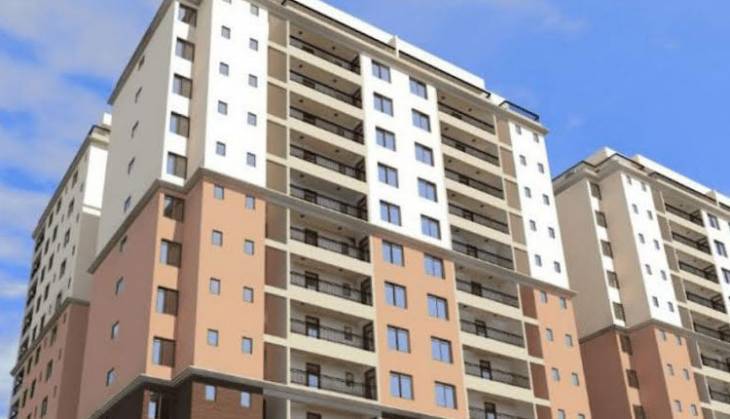Election uncertainty slows down property investment

Anxiety over the outcome of the August General Election has slowed down investments in property in the country, according to land speculators, lawyers in land conveyancing and builders.
Land buyers and developers are scaling down their operations in towns considered as political hotspots where violence has previously occurred since the introduction of plural politics in the country in 1992.
In most of these hotbeds, people are rushing to sell their land, which are sadly fetching poor prices as demand for land plummets, stakeholders in the land sector observe.
In these areas, properties, including commercial and business premises ready for occupation are lying idle as owners prefer letting them after the polls.
Narok County, Turbo and Eldoret in Uasin Gishu County, Eldama Ravine in Baringo County, rural Nakuru, Kapenguria in West Pokot County, some areas of Trans Nzoia County, Mt Elgon in Bungoma County, Lamu County, Turkana County, Kapsabet and Nandi Hills in Nandi County are some of the areas where development in transactions have slowed down, they say.
Stagnant since January
Ernest Tormoi, a land valuer in Moi’s Bridge and in Makutano area in Uasin Gishu and West Pokot counties respectively, says development in the areas have stagnated since January as developers, mostly non natives have adopted a wait and see attitude. “Although stagnation can partly be blamed on the shrinking country’s economy, a big part of it lies with the outcome of the elections. Nobody wants to risk,” he says.
He adds that traders are not keen on stocking their business outlets, because of what he calls ‘the fear of the unknown’.
Edward Kaluma, a medium trader in Mpeketoni area of Lamu County says people in the area are apprehensive about what will happen in the area, which less than 10 years ago experienced attacks that claimed lives and livelihoods.
“We are now living one day at a time. Businesses aren’t expanding, because of among other issues, the anxiety of the General Election,” says Kaluma.
In Narok County, which according to a World Bank assessment report was the second preferred place to invest in the world after a town in China in 2009, a plot measuring 100 feet by 100 feet within the township that has for the last 15 years been fast growing albeit haphazardly, has shrunk by half, from Sh40 million three months ago, to about Sh20 million today. “Heightened political tension is responsible for the slow down. People are lying low, fearing that lives after the election may be unpleasant. Hopefully, as we expect, if elections peter out peacefully, prices of property will rise,” says Henry Nyaema of Boma Property Valuers Limited.
He also says people are not spending on long-term investments, such as property development, a sign that they are keeping their money for a rainy day.
Covid-19 effects
Prices of plots within the town are falling every day as we approach the general election. Those outside the town have fallen by more than half. The weakening of the shilling is exacerbating the problem,” he says.
Demand for land in areas bordering Masai Mara National Reserve for development of tourist facilities, he says, has also gone down.
The drop in demand comes as the real estate development was still emerging from the disruptive effects of Covid-19, which among others saw prices tumble.
Ochiengo Onduso, of Ochiengo Onduso and Company Advocates, says that the company, which handles about 90 per cent of land conveyance, has in the last three months seen business activities drop, adding that his inquiry has shown that willing buyers have suspended business until after the elections in August. “Most of our clients are from areas outside the locality, such as Nakuru and Nairobi counties. They know the history of this place concerning electoral and ethnic violence and can’t now plan for their businesses until after the elections,” he says.
Until December last year, he adds his firm used to execute an average of 50 land deals every day, but that has dropped to an average of seven and that activities at the local Land Registry have also slowed down. “The office used to process more than 100 title deeds after transactions are approved by the land control board meetings, but since the election fever started biting, they have reduced to a trickle,” says Onduso.
He says despite the town operating on a 24-hour economy, still, demand for land for setting up facilities to offer such services is dropping, four months to the August 9 General Election.
“Every election year, people cut back on budgets. Matters are made worse by the fact that the effects of the Covid-19 pandemic, which disrupted the local economy are still being felt,” he adds.
Despite previous boom in estate development, there are many unoccupied residential and business premises, because of among others, hard economic times and the fact that demand has dropped since coronavirus pandemic disruption.
The boom started in 2008 when former Narok Teachers Training College was turned into Narok University College, a constituent college of Moi University and later a fully fledged university— Maasai Mara University.
Later, Maasai Mara Technical University was established, heightening the craze for development.
Developers went on a building spree hoping to cash in on lack of accommodation for students, lecturers and the support staff.
The advent of counties also led to a rush for land as landowners developed them to accommodate the staff and politicians.
The establishment of the two universities and the county further led to establishment of hotels within the town. Four of them have acquired five-star status.
Apart from accommodation and food, they now host regional and East African Community workshops.
Property lying idle
Because almost every investor constructed accomodation and commercial premises, hoping to get a slice of money from the establishment of universities and the county government, most of them are lying idle.
Investors who borrowed loans to build these houses are finding it difficult to service them and are faced by the painful fact that cheap rental houses are found outside the town, such as Ololulung’a, Mulot and even in the adjacent Bomet town in Bomet County, which are linked with well tarmac road to Narok, the county headquarters.
Some workers who own homes commute every day to Narok from Nairobi and Nakuru, thanks to good roads, to avoid the high cost of living, which includes high prices of food and fuel.
Stephen ole Lila, a land speculator, says there are many vacant houses owing to low demand. He blames it on greed by owners who hike rent.“High rents have made people and investors shy away. Investors want an environment where they can pay rent and still remain with money to keep their business going and meeting other obligations,” he says.
Among houses lying unoccupied are one to three-bedroom units, which targeted lectures, senior county officers and students from rich backgrounds, he says, adding that most lectures and county government staff are living in their houses while most students went for the so called bedsitters, which accommodates two to four.







